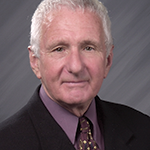According to a survey commissioned by CompHealth, doctors work longer than the average American, intending to retire at age 68.1 Eventually, most physicians do decide to pull the plug on their careers. Questions about when to retire and what happens next are important to answer.
“The primary question to ask yourself is, ‘Do I still love what I do,’ says Lois Geist, MD, associate dean of faculty affairs and development at Carver College of Medicine, University of Iowa, Iowa City. “If paperwork doesn’t subsume your day, and you feel you can spend the amount of time you want with patients, then you probably aren’t ready to leave.”
Ease into Retirement
 Respondents to the CompHealth survey indicated they did not want to entirely give up work. Fifty-one percent said working was a component of their ideal retirement.
Respondents to the CompHealth survey indicated they did not want to entirely give up work. Fifty-one percent said working was a component of their ideal retirement.
One suggestion: Ease into retirement. Stay at your practice, but explore part-time work or covering patients while your colleagues are on vacation. Do something that allows you to keep your hand in, but gives you more freedom to do things you haven’t had the time to do before.
“In our research with orthopedic surgeons in 1999 and Indiana University alumni in 2003, the main problems that surfaced were loss of role and social engagement,” says Hugh C. Hendrie, MB, ChB, DSc, Albert Stone Professor of Psychiatry Emeritus at the Indiana University School of Medicine. “Do you have a substitute available for being a doctor?”2,3
Locum Tenens an Option
 Some take the path chosen by Eric Matteson, MD, MPH, when he retired from the Mayo Clinic in April 2018. “Not wanting to suffer disenchantment from an abrupt end to working life, and at the same time in fulfillment of my interests in international medicine, I took the opportunity to work in New Zealand as a locum tenens,” he says. “Working fewer hours, I am also able to work with the ornithology society here.”
Some take the path chosen by Eric Matteson, MD, MPH, when he retired from the Mayo Clinic in April 2018. “Not wanting to suffer disenchantment from an abrupt end to working life, and at the same time in fulfillment of my interests in international medicine, I took the opportunity to work in New Zealand as a locum tenens,” he says. “Working fewer hours, I am also able to work with the ornithology society here.”
Often, time commitments are less onerous with locum tenens work and allow you to travel at someone else’s expense. Because locum tenens positions are short-term assignments by their nature and by regulation, you have time to do other things you enjoy—and avoid such stressors as running an office.
If serving as a locum tenens physician is not the path you want to take but you still want to remain involved in medicine, become involved in your local, state or national specialty society. Volunteer positions are available in many organizations. Programs to mentor young physicians offer another way to stay involved on a part-time basis.
“You should know you are retiring to something, not only retiring from medicine,” says Dr. Matteson. “To be able to do that, you need to have interests developed before retiring.”

